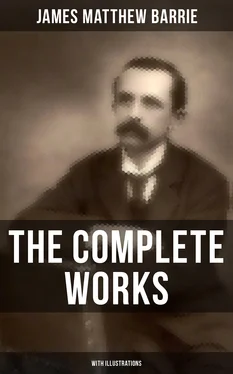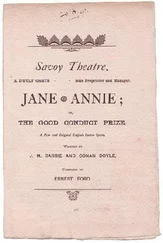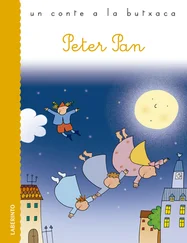"Great Titchfield Street—Branscombe 15, Churchill 11, Langtry 8, Gladstone 4.
"Mortimer Street—Langtry 11, Branscombe 9, Gladstone 6, Mary Anderson 6, Churchill 3.
"Margaret Street—Churchill 7, Anderson 6, Branscombe 5, Gladstone 4, Chamberlain 4.
"Smaller streets—Churchill 14, Branscombe 13, Gladstone 9, Langtry 9. Totals for to-day: Churchill 35, Langtry 28, Gladstone 23, Branscombe 42, Anderson 12, Chamberlain nowhere." Then followed, as if in a burst of passion, "Branscombe still leading—confound her."
Andrew saw that Lord Randolph had been calculating fame from vesta boxes.
For a moment this discovery sent Andrew's mind wandering. Miss Branscombe's photographs obstructed the traffic. Should not this be put a stop to? Ah, but she was a woman!
This recalled him to himself. Lord Randolph had departed, probably for St. Stephen's.
Andrew jumped into a hansom. He felt like an exotic in a glass frame.
"The House," he said.
What a pity his mother could not have seen him then!
Perhaps Andrew was prejudiced. Undoubtedly he was in a mood to be easily pleased.
In his opinion at any rate. Lord Randolph's speech that night on the Irish question was the best he ever delivered.
It came on late in the evening, and he stuck to his text like a clergyman. He quoted from Hansard to prove that Mr. Gladstone did not know what he was talking about; he blazed out against the Parnellites till they were called to order. The ironical members who cried "Hear, hear," regretted it.
He had never been wittier, never more convincing, never so magnificently vituperative.
Andrew was lifted out of himself. He jumped in ecstasy to his feet. It was he who led the applause.
He felt that this was a worthy close to a brilliant career.
We oldsters looking on more coolly could have seen where the speech was lacking, so far as Andrew was concerned. It is well known that when a great man, of whom there will be biographers, is to die a violent death, his last utterances are strangely significant, as if he foresaw his end.
There was nothing of this in Lord Randolph's speech.
The House was thinning when the noble lord rose to go. Andrew joined him at the gate.
The Scotchman's nervous elation had all gone. A momentary thrill passed through his veins as he remembered that in all probability they would never be together again. After that he was quite calm.
The night was black.
The rain had ceased, but for an occasional drop shaken out of a shivering star.
But for a few cabs rolling off with politicians, Whitehall was deserted.
The very tax-collectors seemed to have got to bed.
Lord Randolph shook hands with two or three other members homeward bound, walked a short distance with one of them, and then set off towards his hotel alone.
His pace was leisurely, as that of a man in profound thought.
There was no time to be lost; but Andrew dallied.
Once he crept up and could have done it. He thought he would give him another minute. There was a footstep behind, and he fell back. It was Sir William Harcourt. Lord Randolph heard him, and, seeing who it was, increased his pace.
The illustrious Liberal slackened at the same moment.
Andrew bit his lip and hurried on.
Some time was lost in getting round Sir William.
He was advancing in strides now.
Lord Randolph saw that he was pursued.
When Andrew began to run, he ran too.
There were not ten yards between them at Whitehall Place.
A large man turning the corner of Great Scotland Yard fell against Andrew. He was wheeled aside, but Mr. Chaplin had saved a colleague's life.
With a cry Andrew bounded on, his knife glistening.
Trafalgar Square was a black mass.
Lord Randolph took Northumberland Avenue in four steps, Andrew almost on the top of him.
As he burst through the door of the Grand Hotel, his pursuer made one tremendous leap, and his knife catching Lord Randolph in the heel, carried away his shoe.
Andrew's face had struck the steps.
He heard the word "Fenian."
There was a rushing to and fro of lights.
Springing to his feet, he thrust the shoe into his pocket and went home.
Table of Contents
"Tie this muffler round your neck."
It was the president who spoke. Andrew held his thesis in his hand.
"But the rooms are so close," he said.
"That has nothing to do with it," said the president. The blood rushed to his head, and then left him pale.
"But why?" asked Andrew.
"For God's sake, do as I bid you," said his companion, pulling himself by a great effort to the other side of the room.
"You have done it?" he asked, carefully avoiding Andrew's face.
"Yes, but—"
"Then we can go in to the others. Remember what I told you about omitting the first seven pages. The society won't stand introductory remarks in a thesis."
The committee were assembled in the next room.
When the young Scotchman entered with the president, they looked him full in the neck.
"He is suffering from cold," the president said.
No one replied, but angry eyes were turned on the speaker. He somewhat nervously placed his young friend in a bad light, with a table between him and his hearers.
Then Andrew began.
"The Society for Doing Without," he read, "has been tried and found wanting. It has now been in existence for some years, and its members have worked zealously, though unostentatiously.
"I am far from saying a word against them. They are patriots as true as ever petitioned against the Channel Tunnel."
"No compliments," whispered the president, warningly. Andrew hastily turned a page, and continued:
"But what have they done? Removed an individual here and there. That is the extent of it.
"You have been pursuing a half-hearted policy. You might go on for centuries at this rate before you made any perceptible difference in the streets.
"Have you ever seen a farmer thinning turnips? Gentlemen, there is an example for you. My proposal is that everybody should have to die on reaching the age of forty-five years.
"It has been the wish of this society to avoid the prejudices engendered of party strife. But though you are a social rather than a political organisation, you cannot escape politics. You do not call yourselves Radicals, but you work for Radicalism. What is Radicalism? It is a desire to get a chance. This is an aspiration inherent in the human breast. It is felt most keenly by the poor.
"Make the poor rich, and the hovels, the misery, the immorality, and the crime of the East End disappear. It is infamous, say the Socialists, that this is not done at once. Yes, but how is it to be done? Not, as they hold, by making the classes and the masses change places. Not on the lines on which the society has hitherto worked. There is only one way, and I make it my text to-night. Fortunately, it presents no considerable difficulties.
"It is well known in medicine that the simplest—in other words, the most natural—remedies may be the most efficacious.
"So it is in the social life. What shall we do, Society asks, with our boys? I reply. Kill off the parents.
"There can be little doubt that forty-five years is long enough for a man to live. Parents must see that. Youth is the time to have your fling.
"Let us see how this plan would revolutionise the world. It would make statesmen hurry up. At present, they are nearly fifty before you hear of them. How can we expect the country to be properly governed by men in their dotage?
"Again, take the world of letters. Why does the literary aspirant have such a struggle? Simply because the profession is over-stocked with seniors. I would like to know what Tennyson's age is, and Ruskin's, and Browning's. Every one of them is over seventy, and all writing away yet as lively as you like. It is a crying scandal.
Читать дальше












